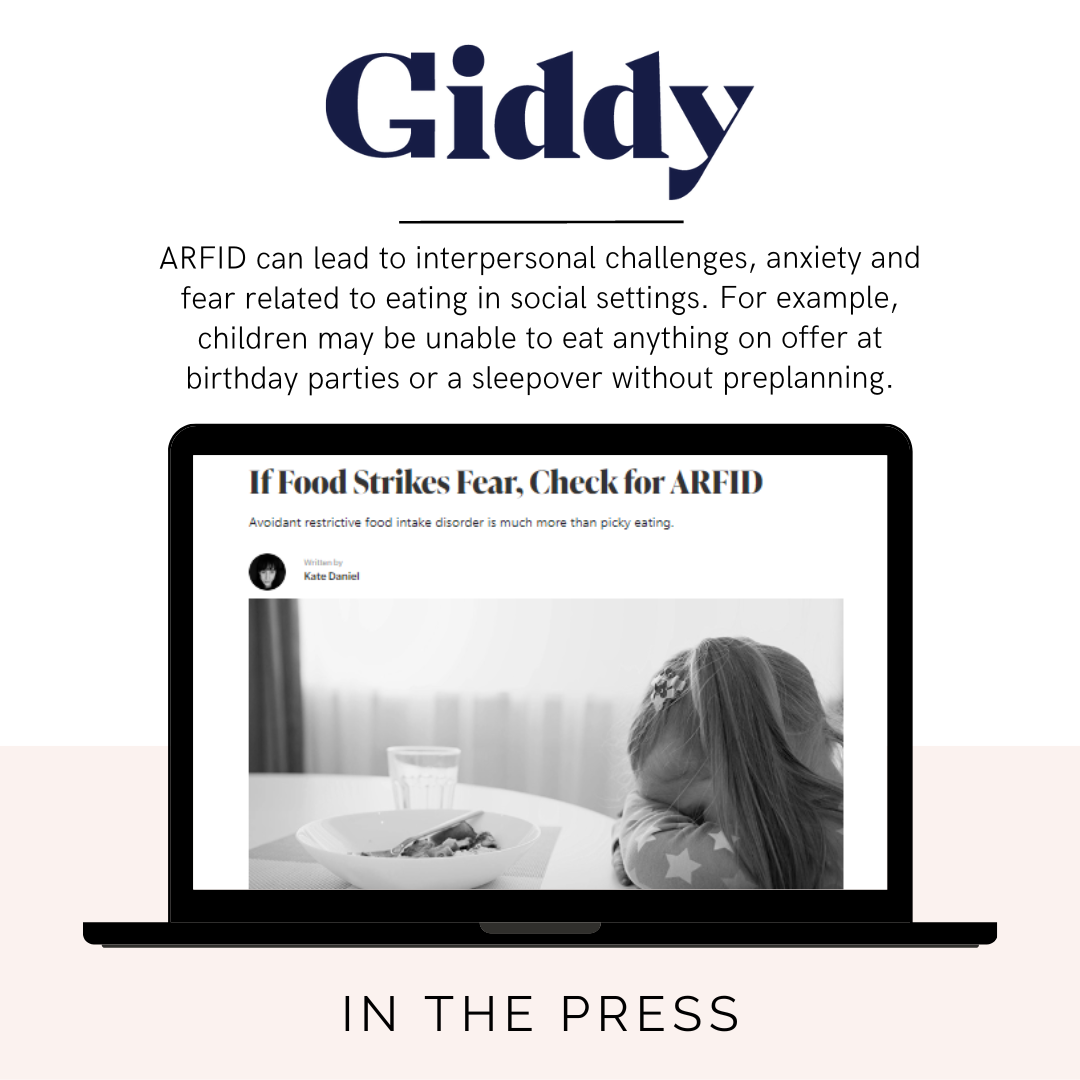When you think of eating disorders then your mind might go straight to anorexia or bulimia, maybe binge eating, but there are also other classified eating disorders within the DSM-V. I was asked to comment on Avoidant Restrictive Food Intake Disorder (ARFID) in this piece for Giddy.
ARFID was added to the DSM 5th edition through expert consensus because previous editions did not provide a specific classification for patients presenting to treatment with eating distress and food avoidance, in the absence of body-related concerns (as in anorexia or bulimia) and when the symptoms could not be accounted for by another medical diagnosis (e.g., food allergy or gastrointestinal disease).

Here are more of my thoughts on ARFID
How is ARFID different from picky eating?
“Picky eaters” tend to eat a limited range or variety of foods and are likely to refuse or be reluctant to try unfamiliar foods. Food neophobia, or being unwilling to try new foods, is a normal part of child development and tends to reduce by 6 years old. Being a picky eater can be inconvenient, for example, when eating at a restaurant, but most people get by and are able to meet their daily energy requirements. On the other hand, those with ARFID have significant impairments in daily functioning and are often unable to gain sufficient nutrition from the limited number of foods that they are willing to eat.
Some people with ARFID show no interest in food or eating and report that they don’t feel hungry, which is less so the case with picky eaters. In addition to lacking interest in food, someone may develop ARFID due to one or more of the following reasons; sensory sensitivities (e.g., may only tolerate the taste, texture, smell or appearance of certain foods), aversion to foods after a bad experience (such as choking, vomiting, gastrointestinal symptoms or an allergic reaction), or as a result of co-existing anxiety.
For a diagnosis of ARFID psychological and physical symptoms cannot be better explained by either another medical diagnosis (e.g., difficulty with swallowing or another eating disorder) or religious or cultural practices.
Trauma, specifically from a bad experience involving food (e.g., food poisoning, abdominal pains, choking) can cause an extreme fear of certain foods or eating, which could lead to the development of ARFID. Trauma from other triggering events (e.g., abuse, car accident, death of a loved one), can lead to the development of ARFID as a coping mechanism to help someone to avoid or suppress negative emotions.
How can ARFID affect a person’s mental and physical health in the short and long-term?
If patients with ARFID do not eat enough food or variety of foods then they are at risk of developing nutrient deficiencies, gastrointestinal issues and symptoms such as dizziness, muscle weakness, low energy and difficulty concentrating. Children with ARFID may fail to achieve developmentally expected weight gains, which may affect long-term growth. Patients with ARFID may need food supplements (e.g., nutritionally complete drinks) or feeding via a tube, which can be inconvenient and generate many hospital visits.
Research suggests that a significant proportion of those with ARFID also have clinical levels of anxiety, with even more showing non-clinical levels of distress around food or in situations involving food. This stress can have a negative impact on overall mental health and can make life more difficult, for example, children may be unable to eat anything on offer at birthday parties or a sleepover without pre-planning or adults may worry days in advance about eating out at a restaurant. For those with ARFID who have little interest in food, the physical health impacts may be larger than the mental impacts, however, others report being embarrassed about their food restrictions and feeling like they are missing out compared to friends and family.
ARFID impacts on someone’s social life and relationships, with caregivers or significant others often very worried about the sufferer and arguments around meal time common.
Read the whole article here: https://getmegiddy.com/food-fear-ARFID

leave a comment
share
share
share
share
share